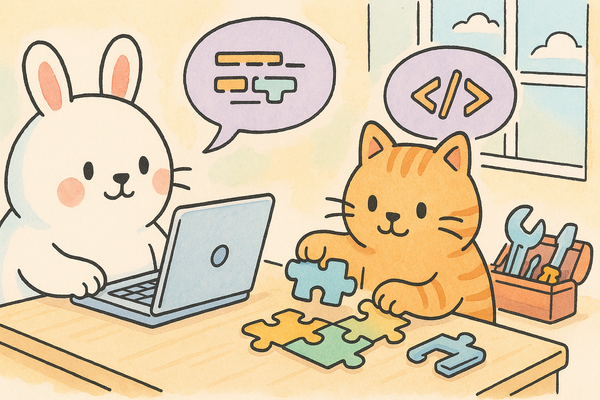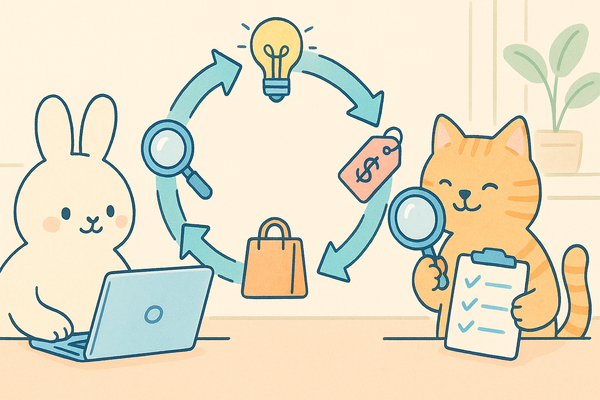What are DeFi's Prospects?
In the last couple of years, people have been building a global, open alternative to every financial products you use today, accessible to anyone in the world with a smartphone and internet connection.

By now, most of you have heard of cryptocurrencies, such as Bitcoin or Ethereum. Even in Silicon Valley, it's been a polarizing technology. Some think of it as seismic as the internet, whereas others think of it as a giant scam. As John Oliver puts it, "Cryptocurrencies: It's all the things you don't understand about computers mashed with all the things you don't understand about money."
The most prominent aspect of cryptocurrencies is the price and volatility, but that's hardly the interesting bit. In the last couple of years, people have been building a global, open alternative to every financial products you use today, accessible to anyone in the world with a smartphone and internet connection.
These financial services are grouped under the umbrella term, Decentralized Finance (DeFi). It's one of the fastest growing sectors in cryptocurrencies, with $26 billion of cryptocurrencies deposited, and growing exponentially as of this writing.
DeFi products are different from their traditional counterparts, in a number of different ways, but to me, the most interesting aspect is that these financial services are interoperable and composable without coordination or permission.
Compound is an automated money market–a lending and borrowing platform for cryptocurrencies. As a borrower, you can borrow crypto with an over-collateralized loan, usually with other crypto as collateral. As a lender, you can lend your crypto to earn continuously compounding interest. When you lend on Compound, you receive cTokens representing your contribution in the lending pool. These cTokens can be bought, traded, and sold on exchanges because cTokens themselves are also cryptocurrencies.
PoolTogether is no-loss prize game. Multiple users trade their cryptocurrency for tickets to pool their crypto together. PoolTogether then uses the pooled crypto to lend in Compound. The interest earned is then used as prize money that gets distributed randomly to ticket holders like a lottery. These tickets can be bought, traded, and sold on exchanges because the tickets themselves are also cryptocurrencies.
PoolTogether didn't have to coordinate with Compound to implement no-loss prize games. And if a new DeFi product wanted to use cTokens and tickets, they can do so without coordinating with either party. This permission-less innovation mirrors the growth of web integrations to provide value to users that each individual service couldn't do alone.
There are many other DeFi products out there, and each successful DeFi product is yet another building block for future DeFi products in a positive feedback loop. By the looks of it, the pace of innovation in this space will only accelerate. [1]
That said, I think it will still be a long while before the DeFi ecosystem will substantially affect the day to day real world workings of the economy. For me, the tipping point will be when businesses can seriously consider using crypto to help integrate financial services into their products for a seamless customer experience. Before, I was more bullish, but now I have reservations.
For one, the regulatory environment is uncertain in this space, as the SEC hasn't made definitive rulings on certain aspects of crypto. If there's draconian regulation, it could easily cool business adoption in this space. However, this won't kill crypto, because the decentralization ethos of crypto has made it more resistant to state-level actors.
Second, cryptocurrencies have some serious user experience problems. There's a definite learning curve, and unless you have sufficiently motivated users, most people aren't going to want to learn all new ways of transacting online. While there is some work on a great user experience, most of the attention and work in the crypto space is about infrastructure, inventing new financial services, and memes.
Third, fintech companies are the default go-to for tech companies that want to deeply integrate a financial service into their product for a more seamless customer experience. They've coined this movement as Embedded Finance. Examples are Uber Insurance for drivers or Shopify Capital to give loans to small businesses. The fintech companies powering financial services aren't your mother's Bank of America, but rather, companies like Stripe and Mercury. They are fierce competitors and are entirely focused on customer experience.
Cryptocurrencies will likely remain as a secondary alternative financial system for speculative assets if it can't find an in-road to being the go-to default for businesses that wants to integrate financial services into their product for a better customer experience. There's only two other paths I can see at the moment. They could provide financial services for companies in spaces that are turning from illegal to legal, like weed delivery companies, since traditional banks won't service them. Or they'd have to provide services that can't exist in traditional finance, such as non-fungible tokens (NFTs).
The other valuable contribution these DeFi products create is the governance model with their community of users. Some DeFi products issue governance tokens as a part of its ecosystem or as natural by-product of using it. These governance tokens can then be used to vote on provisions that dictate the policy the DeFi product should adopt.
For example, MakerDAO is a DeFi product that locks up Ethereum as collateral, and issues a loan for less than the USD value of the locked Ethereum. [2] This loan has a variable interest rate, which is controlled and voted on by holders of the Maker governance token. It's deliberately designed with a system of incentives to give users of MakerDAO a voice to dictate policy, even if they don't work at the company.
While social media companies can sometimes have an internal committee that decides policy, it has no actual system of government to allow users to voice their desires from outside the company. That result in the quagmire we see today with the debates over the censoring power of Big Tech. I think DeFi products have communities that are much better suited to address this class of problems.
It's hard to see the value in cryptocurrencies. There's definitely a lot of hype, meme-ing, and religious fervor that get in the way. In addition, many of the problems crypto projects solve are only applicable if you're already using cryptocurrencies. The early internet was similar. Google, Del.icio.us, Flickr, Yahoo Mail, and Paypal were only useful if you were already using the internet. [3] It wasn't until later we had web services that affected the real world and other industries like Uber, Netflix, and Airbnb. Will crypto be able to jump the gap? For now, I'm cautiously optimistic about DeFi's prospects.
For those of you that are curious:
- A beginner's guide to DeFi by Linda Xie
- Coinbase's beginner's guide to DeFi
- Nakamoto's beginner's guide to DeFi
- DeFi indexes: DefiPulse and DappRadar
I haven't worked in crypto in the last year and a half, but I wanted to catch up with developments since. For those of you working in crypto, what should I look at besides flash loans, social tokens, and yield farming?
Photo by Jason Boyd from Pexels



